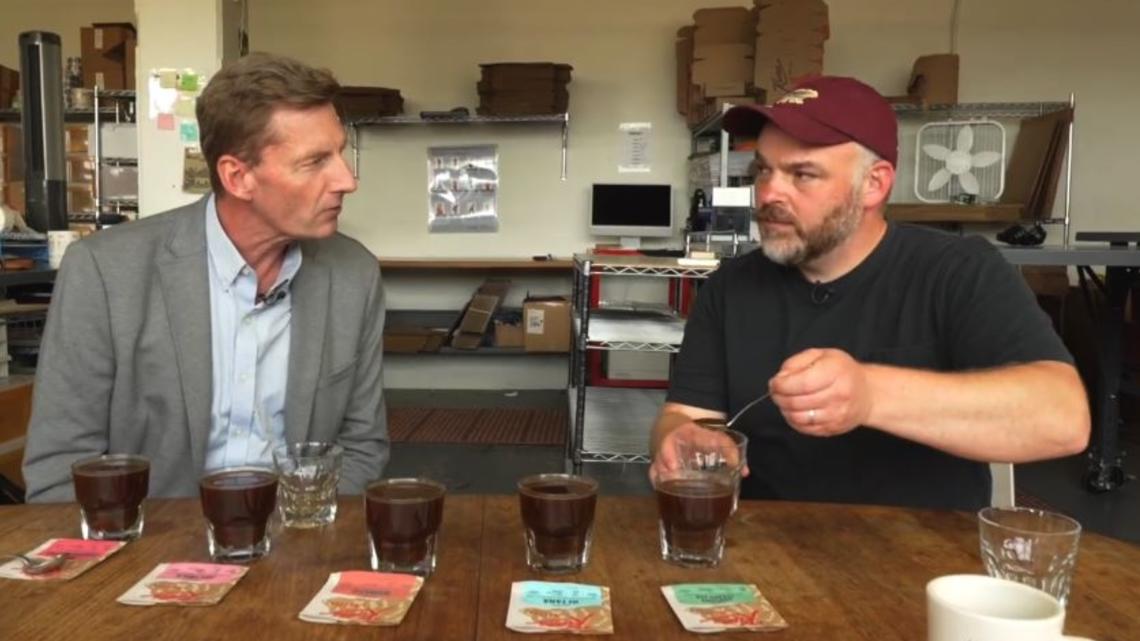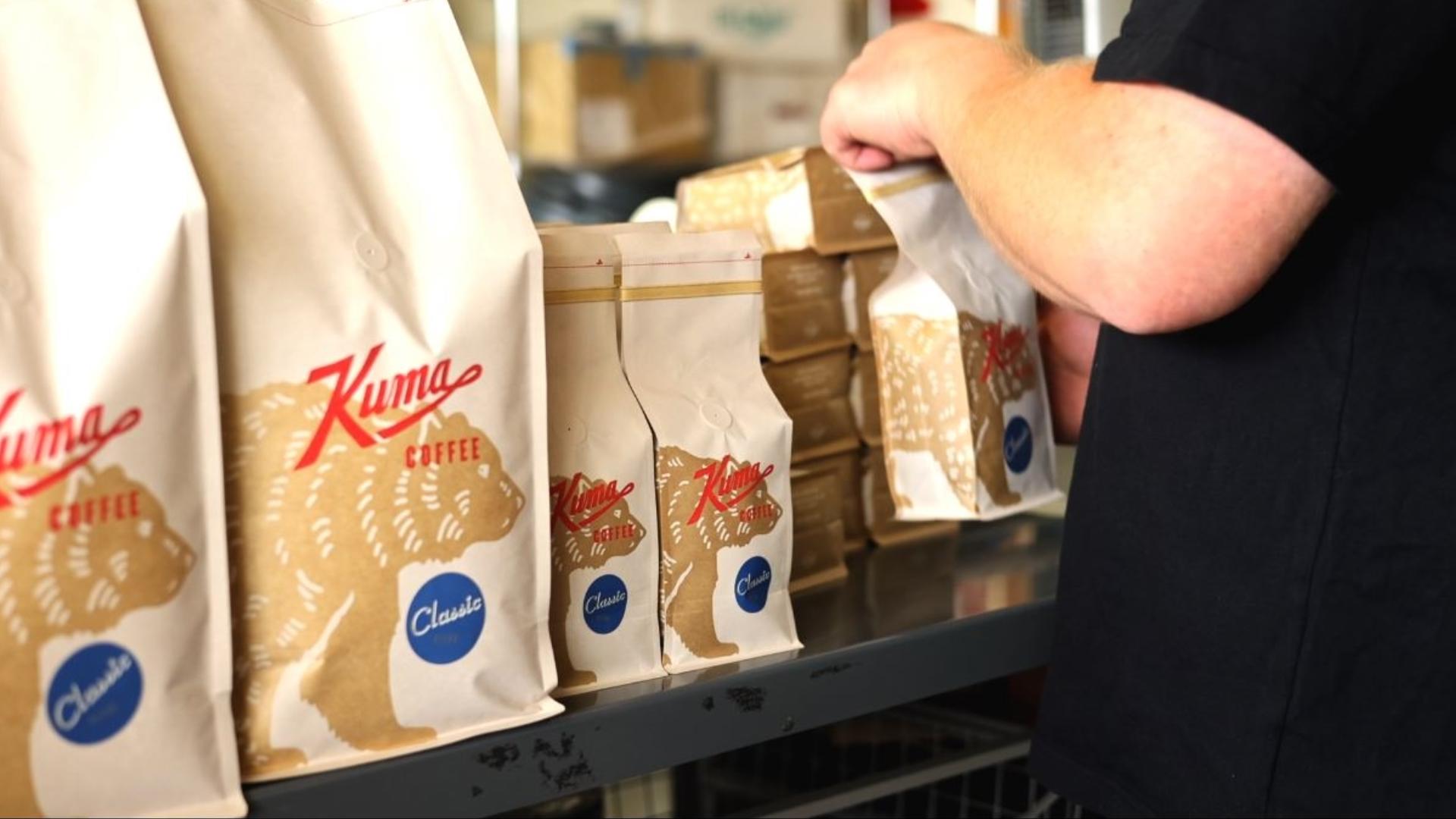SEATTLE — You may have met someone fussy about the way their coffee tastes, but we doubt you've met anyone who cares about the brewing process quite like Kuma Coffee owner Peter Mark Ingalls.
The water he pours from two kettles at the same time is exactly 208 degrees.
"The idea is to get a lot of water interacting with the grounds quickly," Ingalls said.
This attention to detail is one of the reasons Kuma Coffee, based in an Interbay industrial facility with a staff of just 4 people, roasts enough coffee to ship 100,000 pounds of coffee every year.
"It's a surprise that we roast as much as we do," Ingalls said. "Because we don't pay for advertising or anything. It's always just been word of mouth across the whole country and people finding us."
It's all part of a third wave of coffee marketing emphasizing high quality, lightly roasted coffee that treats its farmers well. The first wave? That might have been a cheap cup of joe at the diner. Then came Starbucks, ushering in a wave of quality coffee. The third wave targets high end coffee connoisseurs, people who are willing to pay about $20 for a 12 ounce bag of coffee. This coffee is grown by famers Ingalls has met in often obscure, mountainous regions of countries like Kenya and Guatemala.
"My job might involve getting on very small planes, going to crazy airports at the top of mountains and then driving for hours into the mountains to get to these farms," he said.
There Ingalls would go through an extensive cupping ritual. First, assessing the aroma before breaking the crust that has formed on the surface of the coffee. Then, after allowing the coffee to cool for minutes, finally tasting the coffee by the spoonful. Ingalls has developed a palate over many years of tasting.


"Say there's like a fruit characteristic in the coffee. You say 'OK this is fruity.' So, the next step is 'Well, what kind of fruit?'"
My sense of taste can barely distinguish between salt and sugar but after tasting one of the top sellers, Guatamala Hunapu, I am able to recite notes of fruit punch, oranges, dark chocolate and honeycomb, thanks to years of leaning to discretely read labels
For customers buying Kuma coffee, it's not just about the taste. It often comes down to ethics.
"These farmers work very hard and work very carefully to grow a specific crop and make sure they harvest it at the right time, and we pay often double or triple the fair trade, and again it's always quality based," Ingalls said. "They're just growing something excellent."
Better tasting coffee sourced from individual farms. Kuma has found the key to success and Peter Mark Ingalls doesn't want to change a thing.
"I love the work here," he said. "I love the day to day. I love the roasting and filling the bags. That's how I like to spend my time."
KING 5's Evening celebrates the Northwest. Contact us: Facebook, Twitter, Instagram, or Email.

